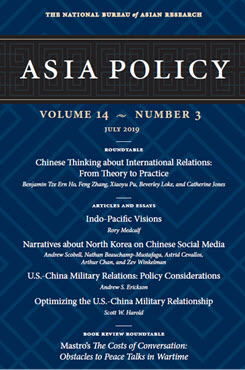China's Middle-Power Practices with Great-Power Outcomes
This essay argues that to understand China’s rising role in the world it is most important to examine how China acts and interacts within the institutions of international order.
Executive Summary
MAIN ARGUMENT
The proliferation of slogans, such as “China dream,” “community of common destiny,” and “peaceful development” reinforces images of a China that knows what it wants and how to get it. As a result, these slogans seem to fix a perception that China is a great power with a “project and purpose,” to quote Andrew Hurrell. But this understanding of China’s approach to global governance risks missing actual moments and areas of China-inspired change. The glimpses we see of fully developed Chinese preferences (beyond policy slogans) are largely derived from China’s existing practices in relation to the international order and a process of negotiation with other states. This is a new form of major- or great-power engagement with the international order, albeit one that may be a product of China learning from experience and doing what works rather than deliberately implementing a grand design.
POLICY IMPLICATIONS
- Rather than asking what China wants, policymakers should instead seek to understand what China does, where it does this, and how to evaluate the implications. The details of its engagement within institutions are informative of the ways that China may nudge or modify the current order.
- China is gradually changing the terms on which states interact with each other, such as by pushing debates and decisions to happen in the UN General Assembly rather than in just the Security Council. To respond to this challenge, states need to offer a clear alternative by building new coalitions based on common interests and making more cogent and compelling arguments for the status quo.
- China is open to modifying what it does based on what works. As a result, to manage the rise of China, states need to focus more rigorously on demonstrating the effectiveness of the alternatives they offer.
Catherine Jones is a Lecturer in International Relations at the University of St. Andrews, where her research focuses on the East Asian states’ engagement with the international normative order. Previously, she was a research fellow at the University of Warwick (2012–18). Her publications include China’s Challenge to Liberal Norms (2018).
About Asia Policy
Asia Policy is a peer-reviewed scholarly journal presenting policy-relevant academic research on the Asia-Pacific that draws clear and concise conclusions useful to today’s policymakers. Asia Policy is published quarterly in January, April, July, and October and accepts submissions on a rolling basis. Learn more


